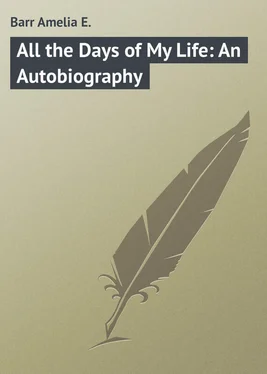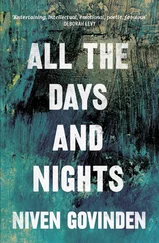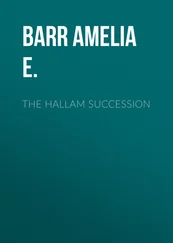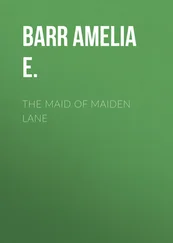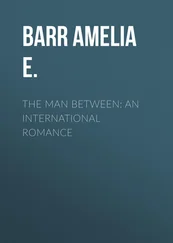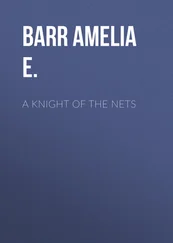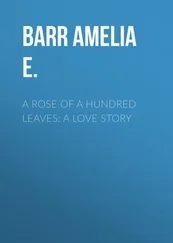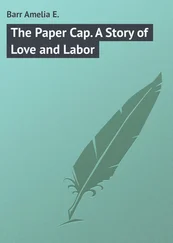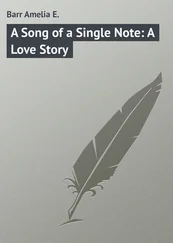Amelia Barr - All the Days of My Life - An Autobiography
Здесь есть возможность читать онлайн «Amelia Barr - All the Days of My Life - An Autobiography» — ознакомительный отрывок электронной книги совершенно бесплатно, а после прочтения отрывка купить полную версию. В некоторых случаях можно слушать аудио, скачать через торрент в формате fb2 и присутствует краткое содержание. Жанр: foreign_prose, foreign_language, на английском языке. Описание произведения, (предисловие) а так же отзывы посетителей доступны на портале библиотеки ЛибКат.
- Название:All the Days of My Life: An Autobiography
- Автор:
- Жанр:
- Год:неизвестен
- ISBN:нет данных
- Рейтинг книги:5 / 5. Голосов: 1
-
Избранное:Добавить в избранное
- Отзывы:
-
Ваша оценка:
- 100
- 1
- 2
- 3
- 4
- 5
All the Days of My Life: An Autobiography: краткое содержание, описание и аннотация
Предлагаем к чтению аннотацию, описание, краткое содержание или предисловие (зависит от того, что написал сам автор книги «All the Days of My Life: An Autobiography»). Если вы не нашли необходимую информацию о книге — напишите в комментариях, мы постараемся отыскать её.
All the Days of My Life: An Autobiography — читать онлайн ознакомительный отрывок
Ниже представлен текст книги, разбитый по страницам. Система сохранения места последней прочитанной страницы, позволяет с удобством читать онлайн бесплатно книгу «All the Days of My Life: An Autobiography», без необходимости каждый раз заново искать на чём Вы остановились. Поставьте закладку, и сможете в любой момент перейти на страницу, на которой закончили чтение.
Интервал:
Закладка:
We visited the Charter House next, and saw many curious things, but I have forgotten them. I saw too much, and Hull remains in my memory like an amazing dream of masts a-rake, intertangled rigging, black barges, ponderous black hulls floating silently past, as if they had no weight. Influences from times long past, and places far off, found their way unerringly to me. The streets and the gray afternoon seemed unreal – like a dream all floated away.
I have a far clearer memory of the dinner we had on our return to the hotel. In my long life, I am sure there are not a dozen dinners I recollect as accurately as this one. Yet it was a very simple meal – just hare soup, and roast duck, and green peas. My father also had celery and cheese, and a glass of port wine, and I had two small raspberry tartlets. But I have that dinner over again today as I write, have it in the same little dingy parlor, with its two open windows. I hear the noise of the streets; I see the picture of Victoria above the chimney piece, and the colored, fancifully cut tissue papers, screening the empty grate; I am sitting at the neatly set table, with its daisy pattern damask cloth and napkins, its old-fashioned knives and forks, and queer-shaped drinking-glasses, and cruet stand. I have never happened to taste hare soup since that day, but I can taste it now. It was a well-cooked meal, eaten with smiles and pleasant conversation and little happy glances at each other. It is dinner number one in my book of memory, though there were neither flowers nor finger bowls on the table. Indeed I do not remember having ever seen a finger bowl at this time and I am not sure, but what I should have considered them as an unpleasant, unmannerly introduction.
Presently we heard a church clock strike, and Father took out his watch and looked at me. “It is time we were going, Milly,” he said cheerfully and I rose and put on my bonnet and gloves. At the wharf we found all in confusion, and The Queen of the Wash ready to sail. There was only time for Father to see me safely on board; then with a few cheerful words and a smiling face he put me in God’s care, and bid me good-bye. I watched him as long as I could see his tall, straight figure among the moving crowd, but he never looked back. I should have been astonished if he had. It was always onward and upward and forward with Father; there was no looking back in his nature, and his physical attitude generally illustrated the feelings and desires of the inner man.
I went at once to my cabin, and being thoroughly weary with my day’s travel and sightseeing I fell asleep, and did not awaken until a woman roused me with the information, that we were near Lynn Regis. It was barely light when I stepped on to the pier, and the ancient place seemed to be fast asleep. No one was in sight, and I asked the captain to send a boy to bring me a carriage. He did so, and I was shortly at The Cross Keys, a hotel standing in the Tuesday Market Place; but feeling still tired and only half-awake I asked for a bedroom, and slept until ten o’clock. This day I had a sense of the most absolute freedom. I could do as I liked; there was no one to obey, and no one to please but myself, and sleep appeared to me at that hour, the most desirable of luxuries. But when I awoke at ten, I was satisfied and fully refreshed, and I dressed myself prettily, and went down stairs and ordered breakfast. After it, I made inquiries about reaching Downham Market, and found there was a kind of stage running between Lynn Regis and Downham Market. The next would leave at noon, which would hurry me, and the last one at three o’clock, and this I resolved to take. For it seemed a great waste of opportunity, not to see something of the old town, when I had the day at my disposal.
I was tired of ships and of water, and wandered up the High Street looking at the shops, and when I came upon a church in Black Goose Street with the door standing open, I went inside. It contained nothing attractive and I was about to leave the building, when an old gentleman led me back to make me notice its three aisles, and the rich and peculiar tracery of the windows and clerestory, and many other things of that kind. But I was not much interested, until he showed me a slab in the pavement, “In memoriam of Thomas Hollingsworth, an eminent bookseller, a man of strictest integrity in his dealings, and much esteemed by gentlemen of taste, for the neatness and elegance of his bindings.”
At this point I remember asking my guide if that inscription was good grammar, adding it does not sound right to me, but then I do not understand grammar.
“Do you know what it means?” he asked sharply.
“Oh, yes!” I answered.
“Then it’s good grammar,” he said decisively.
This remark about grammar, however, brought on me a little lecture concerning a Dominican friar called Galfridus Grammaticus, who lived in Lynn Regis, and compiled and printed the first English and Latin dictionary; and this learned monk introduced another, who may have a rather general interest at this date – Nicholas of Lynn, a Carmelite monk, who in A.D. 1330 sailed to the most northern land in the world – the first Polar expedition on record. Friar Nicholas says, that at the Pole he discovered four indraughts of the ocean, from the four opposite quarters of the world; and I have had good reason during the last three years to retell this story of the first Polar visitor, and to point out that he discovered more than the two latest visitors, and that his narrative is better authenticated.
After leaving St. Nicholas’ Church I sauntered up a street leading me back to the hotel and in doing so passed a jeweler’s shop. My eyes fell upon a bracelet – an old-fashioned bracelet very wide and illuminated by a large stone. I had never possessed a piece of jewelry in all my life, but now I had some money, and I longed for this bracelet. Many times I left the tempting window, but always returned, and finally I went into the shop and asked its price. It was five shillings, and I had twenty shillings. Why not buy it? I hesitated, but at last paid the five shillings and went proudly out of the shop, with the bauble in my pocket. When I reached the hotel, I put it on my arm and felt just a little disappointed at the result. However, I fancied myself wearing it with my silk dress, and thought it would give me an air of great gentility. Then the stage was ready, and I and my silly bracelet went together to Downham Market.
It was perhaps well, that I saw nothing but St. Nicholas’ Church for the mental notes I made there were so few, and so individual, that they settled themselves persistently in my memory. Also, as I had adopted the profession of a teacher, it was creditable to know who made our first dictionary. The Polar expedition lay dormant in my remembrance, until the disputing of the last three years made me recall the information given me so many years ago. Then I came to the conclusion, that any one of the three claims would be just as good as the other, so that if England should stand by her monk’s discovery, it would be hard to disprove her claim; but —
“The fault of the English is the fault of the Dutch,
They never know when they are claiming too much.”
It was about half-past four when I reached Downham Market. The ride was interesting, for the country was quite different from any that I had ever seen. Such green, such deep, living green of the pastures! Such tall strong trees, garlanded at this time of the year with hop vines, twining from branch to branch, and dropping down from their tips, so that the hand could reach them. I saw two fine old manor houses and many lovely cottages. A small, sweet, purple grape climbed over the front, and over the thatched roofs of most of them, and this astonished me, for I had never before known that grapes would grow in the open air in any part of England.
Читать дальшеИнтервал:
Закладка:
Похожие книги на «All the Days of My Life: An Autobiography»
Представляем Вашему вниманию похожие книги на «All the Days of My Life: An Autobiography» списком для выбора. Мы отобрали схожую по названию и смыслу литературу в надежде предоставить читателям больше вариантов отыскать новые, интересные, ещё непрочитанные произведения.
Обсуждение, отзывы о книге «All the Days of My Life: An Autobiography» и просто собственные мнения читателей. Оставьте ваши комментарии, напишите, что Вы думаете о произведении, его смысле или главных героях. Укажите что конкретно понравилось, а что нет, и почему Вы так считаете.
